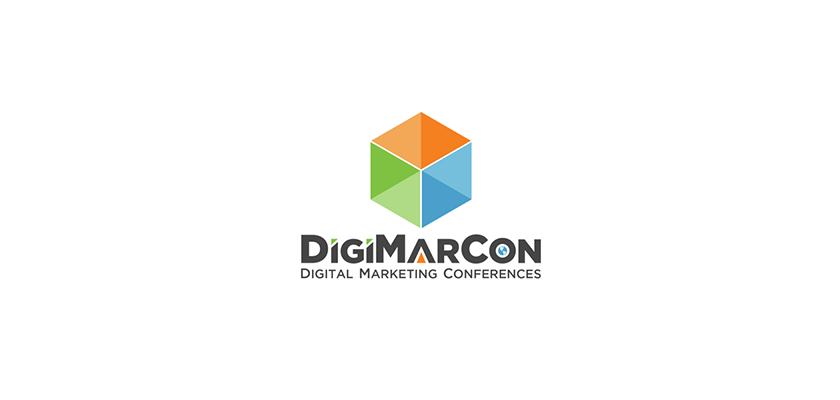
People. Process. Product: Tangent Launches New Content Series of Interviews with Top CTOs
Here at Tangent, they are in the business of digital products. But the conversation isn’t complete without considering the processes that make them happen, or the people behind it all.
In this new content series, Tangent hear from industry leaders about all things people, processes, and products in their business. Read on for interesting insight straight from digital leaders in conversation with Tangent’s Managing Director, Oli Green.
First up is Gunjan Verma, CTO of The Travel Corporation (TTC). TTC is a global travel company that operates in 70 countries and serves 1.9 million travelers annually. It runs several global luxury hotel groups and has over 15 tour operators.
People. Process. Product. with Gunjan Verma, CTO at The Travel Corporation
People
Oli: How did the pandemic and remote working influence your thinking?
Gunjan: The first four weeks had their challenges, but beyond that, I was pleasantly surprised to see the transition and how it was easy enough for us. Collaboration and productivity have continued to be top-notch. But to protect wellbeing and to combat IM overload, we made sure people communicated on the correct channels – whether that was Slack for the devs or Teams for the managers. The only thing I worry about now is the mental health and general well-being of our staff ‘under the surface’. You can at least have one phone call with someone when they have their camera on to check in, but whether there is more going on than that worries me.
Oli: That’s exactly the same for us. Productivity has gone up and our communication across different teams has improved. But I think people may be feeling a little bit burned out because the blend between life and work is less differentiated. Moving on, what would you say are the three top qualities that a leader should have in this uncertain future?
Gunjan: Honest communication is number one. If you’re not sure of the future, just tell your staff. Especially right now, honesty and open communication are key.
Number two is that you need to be empathetic and flexible with your staff. Not everyone has their own room or office to work from so you need to be empathetic about their personal situation. For us, retention has actually improved with 85-90% of our staff sticking around because we’ve given them honesty and openness and said:
If it’s tricky at all, take the morning off work or make up hours at another time.
Thirdly, you cannot lose focus on your business objectives. The two other things are great, but we need to have a single-minded focus. Honestly, for us, this has to be bringing bookings in for the next 12-18 months.
Process
Oli: So how do you approach planning when we have no idea what might happen next week or even tomorrow?
Gunjan: In the early stages of the pandemic, all long-term planning went out of the window. For the first 6 months, in our meetings we had the ‘black slide of death’ which was all of our COVID-related response and crisis management. But in August 2020, we made the call that things wouldn’t return to pre-pandemic levels until Q3 or Q4 of 2021, so we were able to keep that in mind from a product planning perspective. That meant that from October onwards, apart from 20-30% capacity being dedicated to immediate needs, we have all been working towards our normal roadmap. I have protected capacity to respond quickly if things were to change.
Oli: A lot of people are talking about a boom in travel once things get back up and running. Are there any product developments on that side that you’re thinking about?
Gunjan: Our contact centre management platform which unites CRM data to ensure full connection is still very much on track to deliver in the first half of 2021 and we have already gone live in a few of our sites.
Oli: Zooming out from COVID for a second, what would you say is a myth about digital transformation?
Gunjan: I don’t think we should use the word transformation. There’s really no such thing as there is nothing to transform – it has already been transformed for us. Digital is here to stay. It needs to be the main stream of your strategy. The sooner you embrace it as an organisation, the better position you are in to compete in the new world – so we shouldn’t even be worrying about calling it a transformation. It should be a key pillar of your strategy.
Oli: In terms of delivery programmes, can you share how best to run your teams?
Gunjan: We are 100% agile and work with all stakeholders to agree all the requirements. If you don’t have a common understanding going into the project, the variability in the sprints can be too difficult to absorb and you’ll end up making architectural changes you don’t want down the line. We also take a start up approach to embedding business people in scrum teams. Twice a week, they make themselves available for the dev teams to answer questions around requirements, user cases and prioritisation calls. We call it co-creation as we’re saying it’s not a TTC tech product, it’s a business product enabled by TTC tech.
Product
Oli: Is there any specific tech that has helped you overcome challenges posed by COVID-19?
Gunjan: We’re on a path to move our products from legacy data centres to the cloud as there’s no longer a discussion on what is more expensive or more secure – the value in cloudification is clear. We’re now working on the roadmap to make that happen.
Other tech that has served us well are Business Process Automation pieces. This is all about embracing tools like UiPath and UI-based automation which automate at the front end. Since we’re a lean business, we’re always asking where we can use automation.
And for the customer-facing tech side, what we’ve found very helpful has been the consolidation of our tech stack at the back end. We’ve become an all-encompassing AWS, Snowflake and Salesforce data house. Everything goes into AWS, then we use Snowflake for our data manipulation and ETL and then we use Salesforce for CRM, interaction management, ad management and everything else.
Oli: I guess it’s not a coincidence that the stock prices of all those three companies: Amazon, Snowflake and Salesforce are through the roof during a pandemic. In terms of innovation moving forward, is there anything you’re really excited about?
Gunjan: I always say, ‘innovate, but with a commercial perspective’. So play with your new toys and if you hit a point where you can commercialise it, great. Otherwise you abandon it. We run these communities called Playpens, one of which is very active with AI/ML. Something we’re excited about is their cancellation predictor, which uses customers’ interactions on our booking platform to assess in real time and gives a score on how likely they are to cancel. If that score is above a certain rate, we can interject with an offer to bring them back. There’s proof-of-concept there and it’s definitely valuable from a business perspective. The second thing coming out of our Sydney chapter of AI/ML is a lead scoring algorithm. This works by scoring leads based on the data points we capture during phone or website interactions, so our agency can prioritise the hotter leads when it comes to making contact.
Oli: In terms of working with third parties and partners, what do you think the value is? You’ve obviously built out a pretty extensive tech team within your business. Do you work with third parties? How? What do you look for?
Gunjan: Firstly, we have a capacity argumentation partnership for technical talent when we’re running short of capacity. I’ll never be able to scale a team at the demand I get so there will always be a backlog. You can try and be more aggressive on timelines as well but I can’t always build that into my model, so I have to have these partnerships to allow scalability.
The second more interesting case for partnerships is for thought leadership. Of course we know what we know, but there is so much cutting-edge development happening in every sector, whether that’s retail or banking – I get excited about thinking about the Klarnas of the world! These partnerships are more about looking at what others are doing and what other industries are doing. For example, I look at what Airbnb is doing which is very interesting, but if I’m honest, others like Expedia, I already know they are probably adding more products and more connectivity rather than innovating on the core of their platform.
Oli: Are there any future innovations you would really like to see in your field? What’s on your digital wishlist?
Gunjan: I really want our industry to solve the post Covid travel experience from a customer point of view. I’m already getting worried about the kind of silos being created in the process. For example, think about how airlines will be only responsible for boarding and offloading, and then the transfer company or Uber needs to figure out what they need to do, and the hotel then needs to figure out how they function with these travellers. The big question is how can you make it seamless for the traveller.
In the longer term, our industry needs to solve the digital blending of digital and physical user information in a seamless way. For example, we cannot today identify that you’ve been to one of our hotels, and then when you come with us on a different TTC trip. We can tell if we look hard enough, but there is no singular digital profile which runs across these multiple online and offline systems. We are trying different things like MuleSoft, but I don’t think that there is a technology product that has actually solved an end to end, digital and physical customer experience and nailed it perfectly.
Next in the hot seat…
Next up on the People. Process. Product. series, Oli will be in conversation with Rajat Dhawan, Group CTO of the global hospitality business Soho House.
About Tangent
Tangent solves digital challenges and craft memorable customer experiences through product design, tech & conversion rate optimization.




















